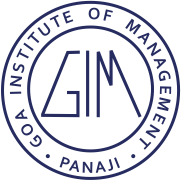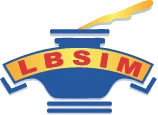General awareness is a must for cracking MBA entrance exams & thereby GD & PI and for few IIMs- Extempore Speech , Written Ability Test.
MBARendezvous.com -India's content lead MBA website has started series of articles to equip MBA aspirants with general awareness with the hope that you would get success in various MBA entrance exams
Following article on”Role Of Small and Medium Scale enterprises” is part of our series on general awareness:
The role of micro, small and medium enterprises (MSMEs) in the economic and social development of the country is well established. In most of the developing countries like India, these industries constitute an important and crucial segment of the industrial sector. They play an important role in employment creation, resource utilisation and income generation. The MSME sector is a nursery of entrepreneurship, often driven by individual creativity and innovation. This sector contributes 8 per cent of the country’s GDP, 45 per cent of the manufactured output and 40 per cent of its exports. The MSMEs provide employment to about 60 million persons through 26 million enterprises. The labour to capital ratio in MSMEs and the overall growth in the MSME sector is much higher than in the large industries. The geographic distribution of the MSMEs is also more even. Thus, MSMEs are important for the national objectives of growth with equity and inclusion.
Read More : LIMCA-The Brand Story, Impact of NPAs of Indian Economy, Industry and Banks
The Ministry of Micro, Small and Medium Enterprises is the nodal Ministry for formulation of policies, programmes and schemes, their implementation and related co-ordination, for the promotion and development of small scale industries in India. The role of the Ministry is to assist the States in their efforts for the growth of the small scale sector, by enhancing their competitiveness in an increasingly liberalized economy. Parliament passed the Micro Small and Medium Enterprises Act in 2006 as a comprehensive legislation looking into all the matters related to the MSME sector. The Act also defined the MSME enterprises engaged in manufacturing as-
i.Micro enterprises: the investment in plant and machinery does not exceed twenty-five lakh rupees
ii.Small enterprise : the investment in plant and machinery is more than twenty-five lakh rupees but does not exceed five crore rupees
iii.Medium enterprise: the investment in plant and machinery is more than five crore rupees but does not exceed ten crore rupees
In the case of the enterprises engaged in providing or rendering of services, MSMEs are defined as-
i.Micro enterprise: the investment in equipment does not exceed ten lakh rupees
ii.Small enterprise: the investment in equipment is more than ten lakh rupees but does not exceed two crore rupees
iii. Medium enterprise: the investment in equipment is more than two crore rupees but does not exceed five crore rupees.
The important advantages of MSMEs in India which made them more relevant for the country’s development are as follows:
•Small-scale industries are fairly labour-intensive. They provide an economic solution by creating employment opportunities in urban and rural areas at a relatively low cost of capital investment.
•Small-scale industries are flexible in their operation. They adopt quickly to various factors that play a large part in daily management. Their flexibility makes them best suited to constantly changing environment.
•A small-scale unit is generally a one-man show. It is mostly set up by individuals. Even some small units are run by partnership firm or company, the activities are mainly carried out by one of the partners or directors. Therefore,' they provide an outlet for expression of the entrepreneurial spirit. As they are their own boss, the decision making process is fast and at times more innovative.
•Small-scale industries use indigenous raw materials and promote intermediate and capital goods. They contribute to faster and balanced economic growth in a transitional economy through decentralisation and dispersal of industries in the local areas.
•Small-scale industries generally restrict their operation to local areas in order to meet the local and regional demands of the people. They cannot enlarge their business activities due to limited resources.
•Gestation period is the period after which the return on investment starts. It is the time period between setting the units and commencement of production. Small-scale industries usually have a lesser gestation period than large industries. This helps the entrepreneur to earn after a short period of time. Capital is blocked for a longer period.
•The educational level of the employees of small industries is normally low or moderate. There is little need of specialised knowledge and skill to operate and manage the SMEs.
Because of the aforesaid features, SMEs are supposed to be instrumental in the initiating the grassroot development and promoting the development with equality. But there are many challenges which are obstructing the full fledged growth of the SME sector. Major challenges include:
•The success of a small enterprise revolves around the entrepreneur and its employees, provided the employees are skilled and efficient. Because inefficient human factor and unskilled manpower create innumerable problems for the survival of small industries. Non-availability of adequate skilled manpower in the rural sector poses problem to small-scale industries.
•Adequate and timely supply of credit facilities is an important problem faced by small-scale industries. This is partly due to scarcity of capital and partly due to weak creditworthiness of the small units in the country.
•Non-availability of sufficient quantity of raw materials, sometimes poor quality of raw materials, increased cost of raw materials, foreign exchange crisis and above all lack of knowledge of entrepreneurs regarding government policy are other few hindrances for small-scale sector.
•Another major challenge faced by small-scale units is the absence of organised marketing system. In the absence of organised marketing, their products compare unfavourably with the quality of the product of large-scale units. They also fail to get adequate information about consumer's choice, taste and preferences of the type of product. The problems do not allow them to stay in the market.
Small-scale units are striving hard to employ modern machineries and equipment in their process of production in order to compete with large industries. Most of the small units employ outdated and traditional technology and equipment. Lack of appropriate technology and equipment create a major stumbling block for the growth of small-scale industries.
Indian economy is characterized by inadequate infrastructure which is a major problems for small units to grow. Most of the small units and industrial estates found in towns and cities are having one or more problems like lack of of power supply, water and drainage problem, poor roads etc.
Small-scale units find it very difficult to compete with the product of large-scale units and imported articles which are comparatively very cheap and of better quality than small units product.
The above mentioned obstacles are not allowing the SMEs to grow to their full potential. Therefore Ministry established few institutions to look after the challenges faced by the MSME sector. Small Industries Development Organisation (SIDO) is the apex organization under the ministry that provides a comprehensive range of common facilities, technology support services, marketing assistance, etc. The National Small Industries Corporation Ltd. was set up with a view to promoting, aiding and fostering the growth of small scale industries in the country with focus on commercial aspects of these functions. NSIC continues to implement its various programmes and projects throughout the country to assist MSME Units.
The National Commission for Enterprises in the Unorganized Sector was constituted in September 2004. The Commission has recommend measures considered necessary for bring about improvement in the productivity of the informal sector enterprises, generation of large scale employment opportunities on a sustainable basis, particularly in the rural areas, enhancing the competitiveness of the sector in the emerging global environment, linkage of the sector with institutional framework in areas such as credit, raw material, infrastructure, technology upgradation, marketing and formulation of suitable arrangements for skill development.
Although the government was offering a slew of schemes and sops for SMEs, a majority didn't utilize them due to lack of awareness and education about the schemes. Despite of this fact, MSMEs are growing but to sustain and reinforce that growth more focused strategy on MSMEs is required which will not only insure the inclusive growth, the objective of eleventh five year plan but will also be instrumental in reducing the poverty, unemployment besides ensuring the more just and equitable growth.
Update your GK / General Awareness and stay tuned to
www.mbarendezvous.com - India's only content lead MBA Portal.






